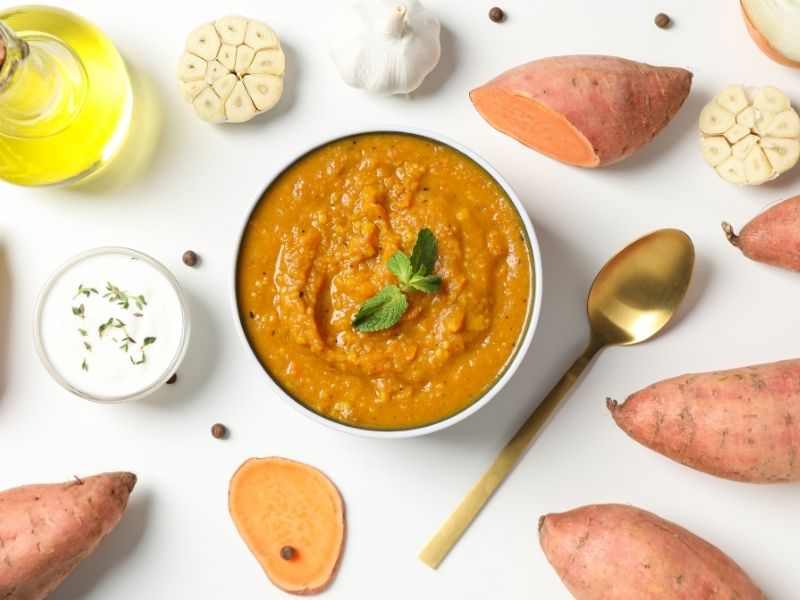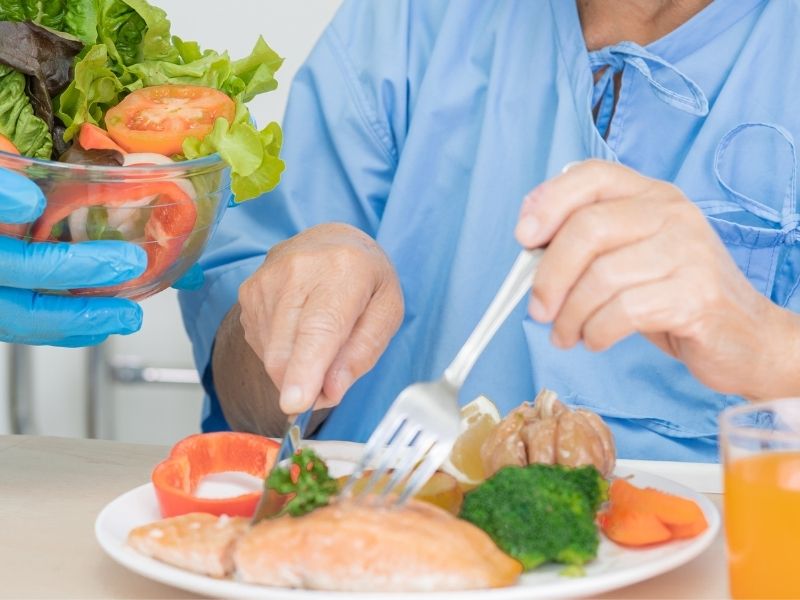Although sleeve gastrectomy is an effective method in the fight against obesity, the postoperative diet is as important as the surgical intervention. If the correct eating habits are not acquired in the postoperative period, both the weight loss process may be interrupted and stomach-related complications may develop. Therefore, the postoperative nutrition process should progress gradually and should be carefully monitored.
First 2 Weeks After Gastric Sleeve Gastrectomy
Liquid nutrition for the first 2 weeks after sleeve gastrectomy is very important to allow the stomach to heal and the digestive system to adapt. During this period, solid foods are prohibited and only foods such as water, broth, lactose-free milk, sugar-free compotes, kefir and protein-supplemented drinks should be consumed.
Patients should drink liquids slowly and in small sips. Drinking fast or consuming excessive amounts of fluids can strain the stomach. Also, acidic drinks, carbonated drinks, caffeinated drinks and sugary drinks should be avoided. Carbonated drinks can expand the stomach and caffeine can irritate it. Protein intake is very important during this process, so protein supplements recommended by the doctor should be consumed regularly.

Puree Period After Gastric Sleeve Gastrectomy
The 2-4 week puree period after sleeve gastrectomy is a critical stage to gradually prepare the stomach for solid foods. During this period, foods with a denser but softer consistency than liquid nutrition are consumed. Since the stomach's digestive capacity is still limited, it is necessary to eat small amounts, in frequent meals and chew well.
Protein-rich foods should be prioritized during the puree period. Recommended foods include yogurt, cottage cheese, boiled and mashed chicken or fish, pureed vegetables (such as carrots, zucchini, potatoes), lentil soup and eggs. Foods should be blended or mashed with a fork to a soft consistency. Spicy, fatty and sugary foods should be avoided to avoid straining the stomach.
During this period, liquids should not be consumed with meals, water and other liquids should be drunk at least 30 minutes before or after meals. Eating too fast or too much can cause stomach upset and dumping syndrome.
Transition to Solid Foods After Gastric Sleeve Gastrectomy
By 4-6 weeks after sleeve gastrectomy, the stomach becomes more tolerant to solid foods. However, this does not mean that all kinds of food can be consumed. Foods that are easy to digest, will not tire the stomach and have high nutritional value should be preferred. Food should be consumed in small portions and bites should be chewed thoroughly. Eating fast or overfilling the stomach can cause discomfort, nausea and dumping syndrome.
Protein-rich foods such as boiled chicken, fish, eggs, cottage cheese and yogurt should be a priority during this period. Well-cooked vegetables (such as carrots, zucchini, potatoes) facilitate digestion. On the other hand, carbonated drinks, acidic fruits, fatty and fried foods, raw vegetables and hard fiber foods should be avoided.
Why is Protein Consumption Important After Gastric Sleeve Gastrectomy?
Protein consumption after sleeve gastrectomy is vital for healthy weight loss and preservation of body functions. Since the stomach volume shrinks with the surgery, patients should make conscious choices for adequate nutrient intake. Protein prevents muscle loss, supports the immune system and contributes to the recovery process after surgery. It also reduces the risk of overeating, as protein consumption provides a feeling of satiety for longer.
Inadequate protein intake can lead to negative effects such as muscle loss, fatigue, weakened immune system, hair loss and slow recovery. For this reason, the daily protein requirement should be determined and the nutrition plan should be organized accordingly. It is important to adopt a protein-oriented diet for long-term health.

Vitamin and Mineral Supplements After Gastric Sleeve Gastrectomy
Vitamin and mineral supplements after sleeve gastrectomy are of great importance to support a healthy weight loss process and prevent possible deficiencies. Since the stomach volume shrinks with the surgery, it may be difficult to get enough vitamins and minerals from food. Since this can lead to various health problems in the long term, regular supplementation under the supervision of a doctor is necessary.
One of the most commonly deficient vitamins is vitamin B12. As the stomach shrinks, absorption of B12 decreases and deficiency can lead to weakness, forgetfulness and nervous system disorders.
Iron deficiency can lead to anemia, so red meat, green leafy vegetables and iron supplements are recommended. Calcium and vitamin D are critical for bone health. Since milk and dairy products are consumed less when the stomach shrinks, calcium supplements are essential to prevent osteoporosis. Regular intake of minerals such as folic acid, zinc and magnesium also helps to strengthen the immune system and speed recovery after surgery. Regular use of the supplements recommended by the doctor ensures that gastric sleeve surgery provides healthy results.









